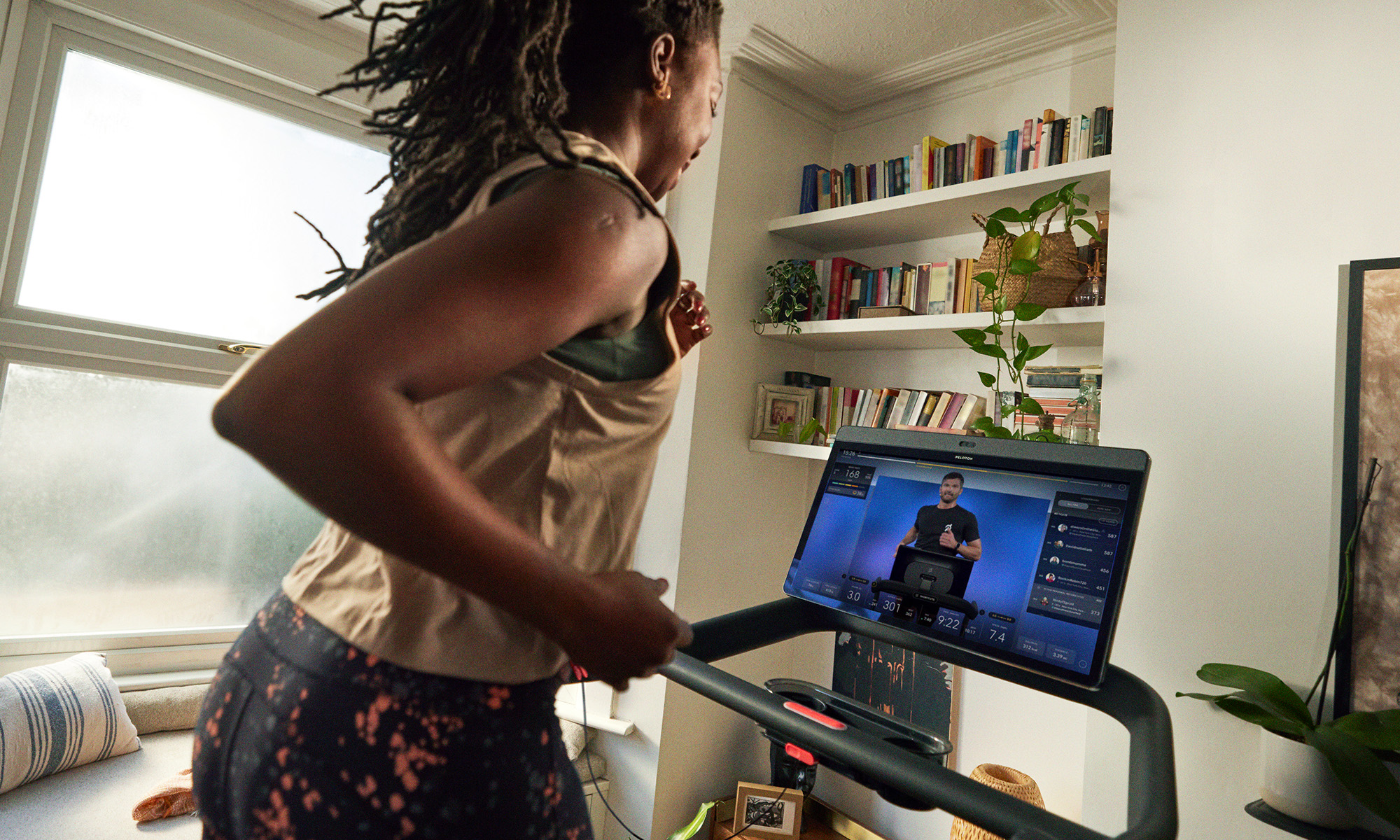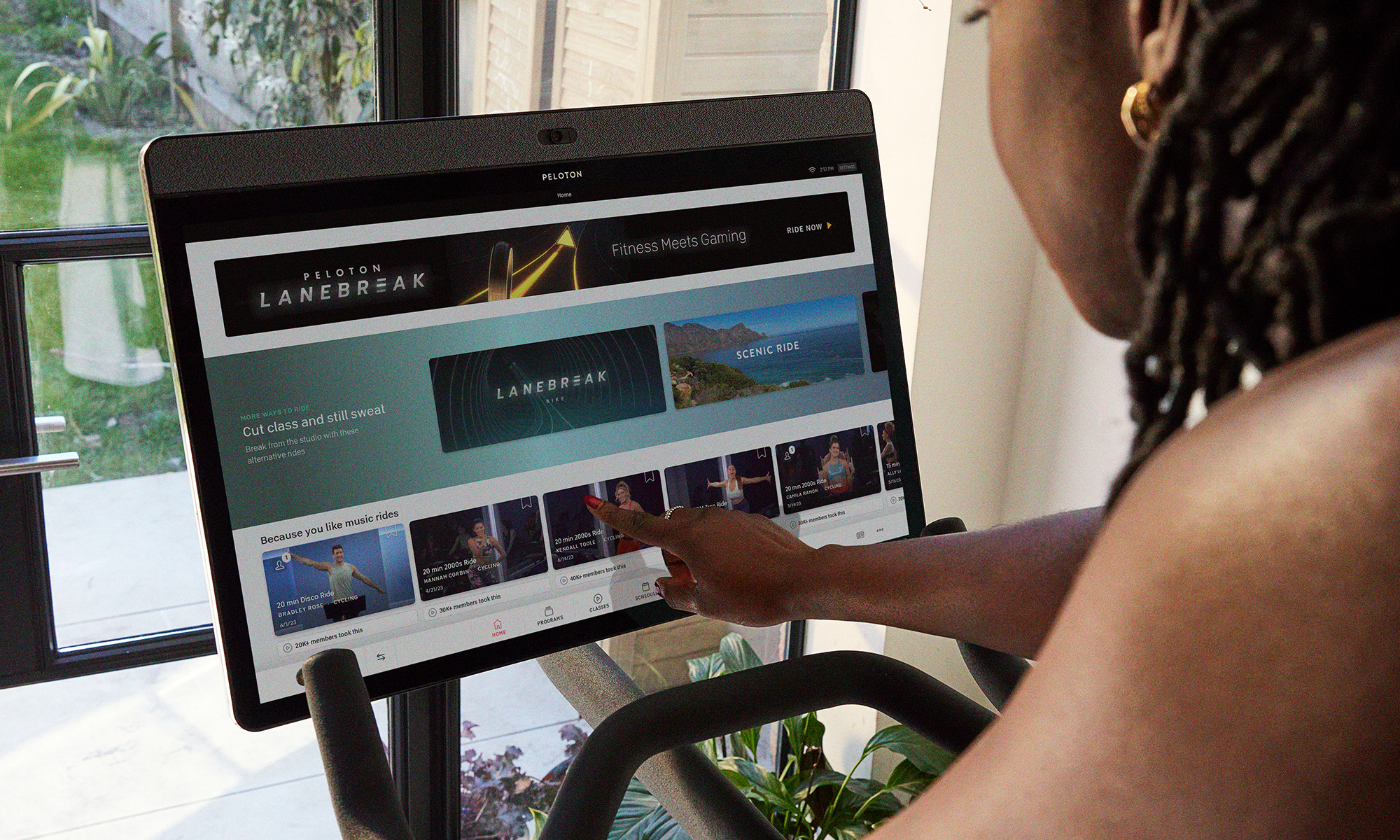We're officially in a recession, according to the National Bureau of Economic Research. Its Business Cycle Dating Committee determined the economy stopped expanding in February. Until then, it was the longest period of continuous economic growth at just over a decade.
Not all companies are equally built to maintain, grow, or thrive during a recession. So how about fitness company Peloton (PTON +3.13%)? It was founded in 2012 and wasn't around for the last recession. Therefore, investors can't simply look at past results to understand how recession-proof its business is.
That said, there's reason to believe Peloton can grow in this current recession. But it's fair to question its durability if things get worse. Here's why.

Image source: Peloton.
The backbone of Peloton's business
Peloton currently sells two home-fitness products: a stationary bike and a treadmill. Both are connected products, meaning they stream live classes and fitness content, and track your personal progress. These connected features require an ongoing subscription. So with the hardware, Peloton gains a customer; with the subscription, it keeps them.
It expects to end the year with over a million connected-fitness subscribers: people who own at least one hardware product. That's impressive for an eight-year-old company. But let's remember it's benefited from a strong economy and a lot of available credit. This is important because, according to Peloton, the majority of customers finance equipment purchases through third-party credit providers.
It's a recession risk that Nautilus (NLS +0.00%), the maker of Bowflex exercise machines, knows well. Nautilus' revenue quadrupled from the start of 2000 to the end of 2007. But sales plummeted during the recession. Demand didn't necessarily dry up. Rather, lenders got stricter and customers didn't have access to credit.
NLS Revenue (TTM) data by YCharts. Recessions highlighted in gray. TTM = trailing 12 months.
On the surface, this paints a potentially ugly recession picture for Peloton. But consider that this recession is different from the last one. Currently, our recession is partially the result of muted economic activity from the coronavirus. The credit market, however, remains intact. Accordingly, Peloton sales are still through the roof. During the last few weeks of its fiscal third quarter (as the recession began), product sales accelerated.
The home-fitness equipment market is also larger now than it was in the last recession, meaning there's more sales opportunities. In 2006 and 2007, Nautilus' heyday, it had annual net sales of only $617 million and $501 million respectively. Peloton generated revenue of $525 million in its most recent quarter and is still growing at a fast pace.
The point is, Peloton appears to be resistant to this recession. But if it starts to affect the credit market, it could be a problem for sales of connected fitness hardware.

Image source: Peloton.
The more lucrative segment
Peloton's more lucrative business is its subscription service. Through the first three fiscal quarters of 2020, the gross profit margin for connected fitness hardware was 43%, compared with 57% for subscription revenue. And since the company doesn't really have to market its subscription service, more gross profit makes it to the bottom line.
At $39 per month, a Peloton subscription isn't cheap. Yet there's incentive to keep paying this ongoing cost. Peloton hardware is expensive, and much of the benefit goes away without a subscription. Customers don't want the big purchase price of equipment to be a waste, therefore they continue monthly payments. Here's the proof: As of June 2019, 92% of Peloton's customers who had ever bought a connected-fitness product still subscribed to the monthly service.
This suggests Peloton provides an incredibly sticky service that users are hesitant to part with. But it's not as essential as food, shelter, and clothing. Therefore, it seems customers could cancel Peloton subscriptions in a recession, but likely only if things get desperate. And we're not there yet in our present recession.

Image source: Getty Images.
"Recession-resistant"
For Peloton, "recession-resistant" is a better label than recession-proof. The company can continue growing equipment sales in the recession we're in, as long as consumers have access to credit. And equipment sales drive monthly subscriptions, which users are compelled to continue paying for. But if the current recession worsens, then there would be reason to reconsider this growth stock's durability.
For long-term investors, there's a final takeaway. Peloton isn't letting this recession go to waste. It has a subscription app for people who don't own its equipment, and it's been available as a free trial because of COVID-19. Over 1 million people signed up, and 80% are doing exercises not covered by current connected fitness products.
Peloton's research and development spending increased 62% year over year in Q3, as the company develops a product pipeline. The insight gained from app usage can now steer new-product development prioritization, which could turn the recession into a growth opportunity.







